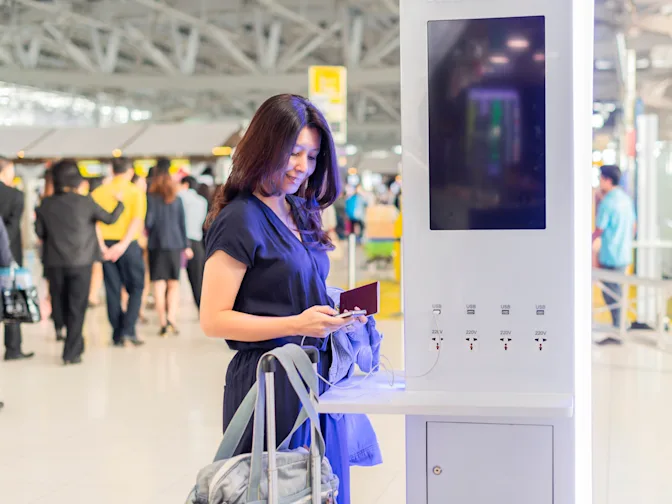
How to Stay Safe From 'Juice Jacking' During Your Holiday Travels
As holiday travel ramps up, public charging stations in airports, hotels, and shopping centers become lifelines for drained devices. But while these convenient power sources may seem harmless, they can expose you to a cyber threat called "juice jacking." Here's how to protect yourself and your devices while staying connected on the go.
What Is Juice Jacking?
Juice jacking occurs when hackers exploit public USB charging stations to access your device's data or install malware. Public USB ports can be compromised to carry out malicious activities, potentially stealing sensitive information like passwords, banking details, and personal files. Devices connected to these tampered charging points are vulnerable to unauthorized data transfers, turning a simple charge into a costly breach of privacy.
Is Juice Jacking a Real Threat?
While juice jacking is technically possible, its prevalence remains debatable. Some cybersecurity experts argue that the threat has been sensationalized, with few documented cases of successful attacks. Nevertheless, the potential risk exists, especially during high-travel seasons when people are more likely to rely on public charging stations.

Juice jacking doesn't discriminate — any device that connects to a USB charging station, from phones to tablets to smartwatches, can be compromised. The vulnerability lies not in the type of device but in the USB connection itself, which can be tampered with by cybercriminals to install malware. Despite the alarming headlines, there haven't been any recent documented cases of juice jacking. The heightened attention stems largely from a Denver FBI tweet that resurfaced a 2019 FCC warning. This advisory, initially issued after customer complaints, appears to be a general caution rather than a response to an uptick in actual incidents.
Tips to Avoid Juice Jacking
Protecting yourself from juice jacking doesn't require extreme measures — just a little preparation and awareness. Here are practical tips to ensure your devices stay safe:
1. Bring Your Own Charging Accessories Use a personal charging brick and cable to plug directly into a wall outlet instead of a public USB port. This reduces the risk of connecting to compromised hardware.
2. Carry a Portable Power Bank A power bank can save you in a pinch when outlets or safe charging options aren't available. With your portable charger, you avoid using public stations altogether.
3. Invest in a Data Blocker USB data blockers disable the data pins in your USB cable so data cannot transmit when charging your device. This simple device is a cost-effective way to charge safely on the go.
4. Disable Data Transfers Before plugging into a USB port, ensure your device's data transfer capabilities are disabled. Many phones have a "charge only" mode that prevents unauthorized data access.
Stay Safe and Stay Charged
Though the risk of juice jacking may not be as rampant as other cybersecurity threats, it's always better to be cautious. With a few preventive steps, you can enjoy your holiday travels without worrying about compromised devices. Remember: safe charging is smart charging.
References: What is 'Juice Jacking' and Tips to Avoid It | Juice jacking: Is it a real issue or media hype?























